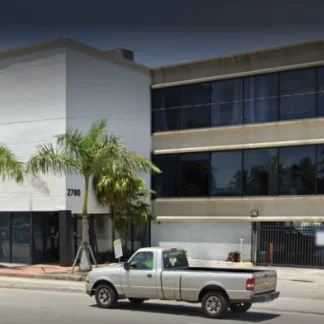WestCare - Village South - 4th Avenue
WestCare Village South is a women’s-only rehab facility in Miami, Florida that o...
Healthy Connections is a drug and alcohol rehab located in Miami, Florida. They provide outpatient addiction treatment and mental health counseling for all ages.
Addiction-related services provided at this facility include outpatient addiction treatment and mental health counseling for children and adults.
Outpatient Addiction Treatment Healthy Connections offers several outpatient counseling services. They provide school-based psychotherapeutic services to children and families, as well as an after-school emotional literacy program. At the facility, mental health, substance abuse, and psychiatric evaluations are provided. Outpatient counseling includes individual, family, and group therapy, cognitive-behavioral techniques, and Triumph Steps®, an Eight Step Therapeutic Framework. Additionally, targeted case management, parent coaching, 24-hour crisis intervention, and parent enrichment sessions are provided. Coaching techniques include affirmations, visualizations and guided imagery, and Remaining in the Here and Now 101.
Contact us for more information: (305) 646-0112

Connect with Healthy Connections by calling their admissions team directly.
(305) 646-0112 Website Get DirectionsWhether a marriage or other committed relationship, an intimate partnership is one of the most important aspects of a person's life. Drug and alcohol addiction affects both members of a couple in deep and meaningful ways, as does rehab and recovery. Couples therapy and other couples-focused treatment programs are significant parts of exploring triggers of addiction, as well as learning how to build healthy patterns to support ongoing sobriety.
Research clearly demonstrates that recovery is far more successful and sustainable when loved ones like family members participate in rehab and substance abuse treatment. Genetic factors may be at play when it comes to drug and alcohol addiction, as well as mental health issues. Family dynamics often play a critical role in addiction triggers, and if properly educated, family members can be a strong source of support when it comes to rehabilitation.
Group therapy is any therapeutic work that happens in a group (not one-on-one). There are a number of different group therapy modalities, including support groups, experiential therapy, psycho-education, and more. Group therapy involves treatment as well as processing interaction between group members.
In individual therapy, a patient meets one-on-one with a trained psychologist or counselor. Therapy is a pivotal part of effective substance abuse treatment, as it often covers root causes of addiction, including challenges faced by the patient in their social, family, and work/school life.
Research clearly demonstrates that recovery is far more successful and sustainable when loved ones like family members participate in rehab and substance abuse treatment. Genetic factors may be at play when it comes to drug and alcohol addiction, as well as mental health issues. Family dynamics often play a critical role in addiction triggers, and if properly educated, family members can be a strong source of support when it comes to rehabilitation.
Group therapy is any therapeutic work that happens in a group (not one-on-one). There are a number of different group therapy modalities, including support groups, experiential therapy, psycho-education, and more. Group therapy involves treatment as well as processing interaction between group members.
In individual therapy, a patient meets one-on-one with a trained psychologist or counselor. Therapy is a pivotal part of effective substance abuse treatment, as it often covers root causes of addiction, including challenges faced by the patient in their social, family, and work/school life.
Group therapy is any therapeutic work that happens in a group (not one-on-one). There are a number of different group therapy modalities, including support groups, experiential therapy, psycho-education, and more. Group therapy involves treatment as well as processing interaction between group members.
In individual therapy, a patient meets one-on-one with a trained psychologist or counselor. Therapy is a pivotal part of effective substance abuse treatment, as it often covers root causes of addiction, including challenges faced by the patient in their social, family, and work/school life.
In individual therapy, a patient meets one-on-one with a trained psychologist or counselor. Therapy is a pivotal part of effective substance abuse treatment, as it often covers root causes of addiction, including challenges faced by the patient in their social, family, and work/school life.
WestCare Village South is a women’s-only rehab facility in Miami, Florida that o...
Adaptive Center - Coral Way is an addiction treatment center that offers freedom...
Brave Health is a private rehab located in Miami, Florida. Brave Health speciali...
C and C Rehabilitation is a private rehab located in Miami, Florida. C and C Reh...